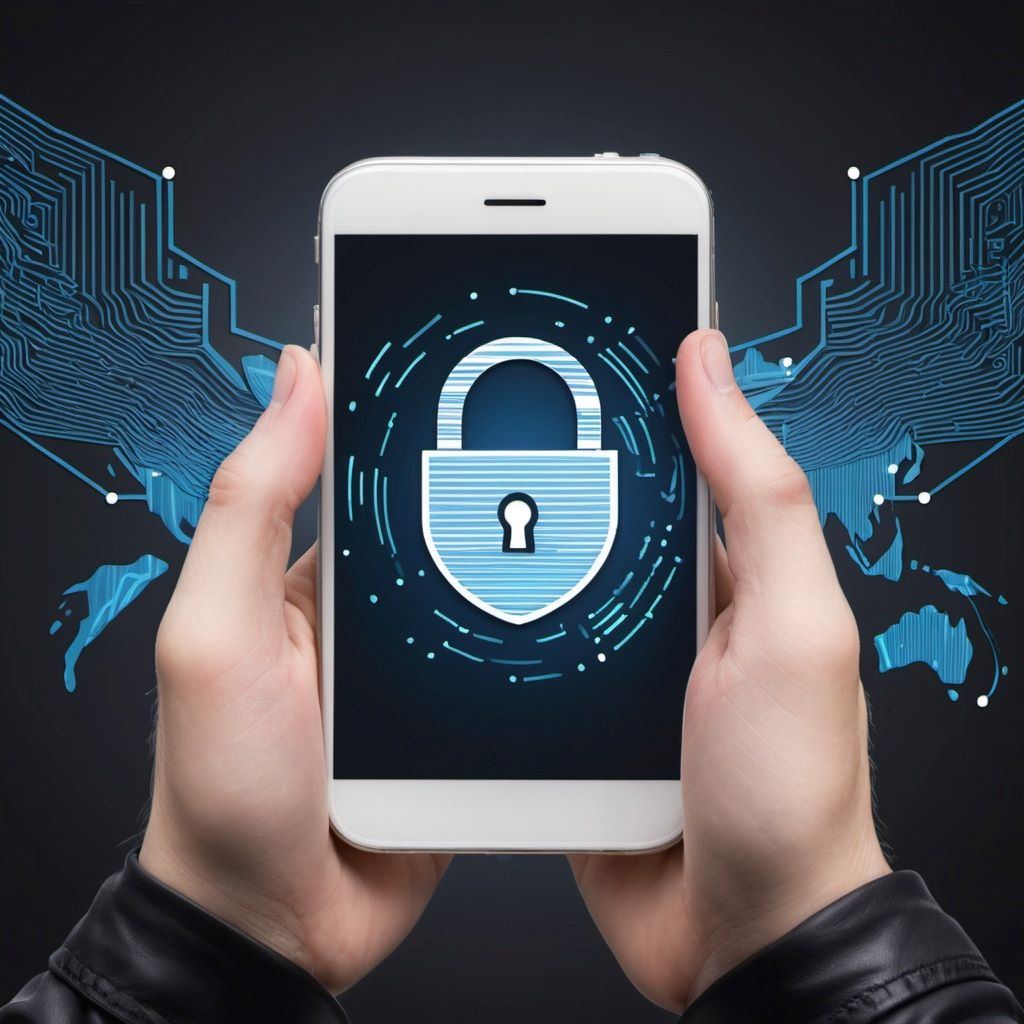In our fast-paced, technology-driven world, mobile device security have become an integral part of daily life. Smartphones and tablets are not just communication tools; they serve as gateways to our personal and professional lives, storing sensitive information such as bank details, personal messages, and even health records. However, this reliance on mobile technology also exposes users to various security threats. Understanding mobile device security and implementing effective protection measures is essential for safeguarding personal information and maintaining privacy.
ADS

What is Mobile Device Security?
Mobile device security refers to the strategies and practices designed to protect mobile devices from various threats and vulnerabilities. These threats can come in many forms, including malware, phishing attacks, and data breaches. Mobile device security encompasses a wide range of measures, including the use of secure applications, encryption, remote wiping capabilities, and regular updates to the operating system and apps. The primary goal is to ensure the confidentiality, integrity, and availability of data stored on mobile devices.
Why is Mobile Device Security Important?
- Protection Against Data Theft: With the vast amount of personal and financial information stored on mobile devices, the risk of data theft is significant. Cybercriminals target mobile users to gain access to sensitive data, which can lead to identity theft and financial loss. Implementing robust mobile device security measures can help prevent unauthorized access to this information.
- Increased Use of Mobile Banking: As more people use their mobile devices for banking and financial transactions, the potential for fraud increases. Mobile banking applications can be vulnerable to attacks if not properly secured. Users must ensure that their devices are protected to safeguard their financial information.
- Business Security: Many employees use their personal devices for work-related tasks, which can pose risks to organizational security. A compromised mobile device can lead to data breaches and the exposure of sensitive company information. Implementing mobile device security measures is crucial for protecting both personal and corporate data.
- Rising Mobile Malware Threats: The prevalence of mobile malware has been increasing steadily. Cybercriminals create malicious apps that can steal personal information or track user activities. Protecting devices with security measures can help prevent malware infections and their potentially damaging consequences.
- Regulatory Compliance: Many industries are subject to regulations regarding data protection and privacy. Organizations must ensure that they meet these compliance standards, which often extend to mobile device security. Failure to comply can result in significant penalties and damage to the organization’s reputation.
Key Threats to Mobile Device Security
- Malware: Malicious software designed to harm or exploit devices is one of the most significant threats to mobile security. This includes viruses, worms, and trojans that can steal personal information or disrupt device functionality. Users should be cautious when downloading apps and ensure they are from reputable sources.
- Phishing Attacks: Phishing attacks involve tricking users into providing personal information through fraudulent messages or websites. Cybercriminals often use social engineering tactics to lure users into revealing sensitive information. Users should be wary of unsolicited messages and verify the authenticity of requests for personal data.
- Lost or Stolen Devices: Losing a mobile device or having it stolen poses a significant security risk. If proper security measures are not in place, unauthorized individuals can access personal information stored on the device. Implementing remote wipe capabilities can help protect data in such scenarios.
- Unsecured Wi-Fi Networks: Connecting to public Wi-Fi networks can expose devices to various security threats. Cybercriminals can intercept data transmitted over unsecured networks, leading to data breaches. Users should avoid accessing sensitive information on public Wi-Fi and consider using a Virtual Private Network (VPN) for added security.
- Insecure Apps: Not all mobile applications are created equal. Some apps may have weak security measures, making them vulnerable to attacks. Users should research apps before downloading them and pay attention to reviews and ratings.
Best Practices for Mobile Device Security
- Use Strong Passwords: Setting strong, unique passwords for device access and applications is crucial for protecting personal information. Passwords should be a combination of letters, numbers, and symbols and should not be easily guessable.
- Enable Multi-Factor Authentication (MFA): MFA adds an extra layer of security by requiring users to verify their identity through multiple methods. This could include a text message, email verification, or a biometric scan. Enabling MFA can significantly reduce the risk of unauthorized access.
- Keep Software Updated: Regularly updating the operating system and applications is essential for maintaining security. Updates often include patches for vulnerabilities that could be exploited by attackers.
- Install Security Apps: Utilizing security apps, such as antivirus and anti-malware software, can help protect devices from potential threats. These apps can scan for malware, block malicious websites, and provide additional security features.
- Educate Yourself: Staying informed about the latest security threats and best practices is vital for maintaining mobile device security. Users should regularly review their security settings and remain vigilant against potential risks.
- Be Wary of App Permissions: Before installing apps, users should carefully review the permissions requested. Some apps may request access to information that is unnecessary for their functionality. It’s essential to deny permissions that seem excessive.
- Utilize Remote Wipe and Lock Features: In case of loss or theft, enabling remote wipe and lock features can help protect sensitive information. These features allow users to remotely delete data or lock their devices to prevent unauthorized access.
Conclusion
Mobile device security is more important than ever in today’s digital landscape. As mobile devices become more integrated into our daily lives, the risks associated with their use also increase. By understanding the potential threats and implementing best practices for mobile security, users can protect their personal information and ensure their devices remain secure. With the right measures in place, individuals can enjoy the convenience of mobile technology without compromising their security or privacy.
For further information on mobile device security, consider exploring resources from reputable organizations like the National Cyber Security Centre (NCSC) and Kaspersky.


